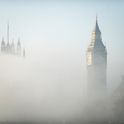Actor Michael Le Vell and I faced similar charges, and were cleared of any wrongdoing. Those were the headlines; yesterday’s newspapers that now wrap the fish and chips on a Saturday night. But the reverberations run on, because the lives that have been ruined by these unsubstantiated accusations still have to be lived out openly in the public eye.
Le Vell’s story and mine have considerable similarities. On September 20th 2011, at 6am, seven police officers arrived at my front door. In front of my wife and daughter, I was arrested. While I was being questioned at the local police station, my home was thoroughly searched, my computers and phone taken, my family horrified by the events as they unfolded. That evening, my name and picture were on BBC News and the national press followed up the next day. The allegations referred to a supposed sexual encounter with an underage girl that someone claimed had taken place some 19 years previously—but which had not. It was the worst day of my life, but I will say that the police always behaved properly throughout the affair. It was the Crown Prosecution Service who brought the case to court, not the police.
Twenty-two months later, on the 12th July 2013, I was cleared of all charges at the Old Bailey. The woman’s medical records, doctor’s testimony and other solid witness evidence (including by prosecution witnesses) disproved her claims. But within weeks of being charged, business at our hotel and golf club in Wiltshire had dropped by 30 per cent because people didn’t want to associate with us. In public, I walked around feeling full of guilt and shame for something I hadn’t done. I was even confronted with my face on the front of the local newspaper when I went to do a quick shop at Morrisons. I got a lot of double-takes as I did the shopping.
Somehow my wife, Jennifer, and I, kept going and managed to ward off the bank, dilute our savings and pensions and sell personal objects for a fraction of their real price. We also sold the business for a knockdown price. I still don’t know how we managed all that and avoided bankruptcy. The legal fees alone cost me around £700,000. Jennifer was my real strength; I really lost heart so many times. My kids, and a phalanx of friends, kept me going. They gave me the backbone I never felt I had. But that’s life, and you can either ride it or fall off and never get up again.
What really amazed me the most during the trial, which lasted 11 weeks instead of the planned four, was how flawed our legal system is. It’s right that every such allegation should be followed up. But when virtually no supporting evidence is found (my computers, as with Le Vell’s, and the search of my home produced no link with pornography, young girls, or contacts with any group), is it right that a case cannot straightforwardly be dismissed? At my hearing to have my case dismissed, an Old Bailey judge said that “all historical cases [that is, where an allegation refers to events many years previously] will be tried in front of a jury.” Not that they “may” go to a full jury trial, but that they “will,” even where there is little or no firm evidence.
The trial was worse—and the judge allowed what had formally projected to be a four-week trial to run to 11 weeks. During that time, we only once completed a five-day week. We never once started on time, were usually at least 20 minutes late, and were rarely in court on Fridays. At £35,000 per day, the extra 35 days cost an extra £1.25m. The Old Bailey has 19 courts. You don’t need a maths degree to work out the scale of the costs regularly wasted.
So, after the sheer relief and tears of the “Not Guilty” verdict from the jury, how did I feel about it all? Above all, I think that my experience shows why the accused should get some form of anonymity until proven guilty. The police say that names are given out in the public interest, so that anyone who has more evidence can come forward. No one did so in the 22 months before I was exonerated, but the world and his wife knew what I was accused of.
There will always be some people who believe I was guilty, while the complainant just fades back into obscurity. We must ensure that people who really have been subjected to abuse will still come forward. They deserve that protection and more resources should be available to investigate all claims, to ferret out perpetrators of these heinous crimes. But there have to be checks and balances to protect both parties until that verdict is reached. Thousands of rape cases go unreported in the media; they should report them all.
New laws regarding legal aid now make it more difficult for those without money to gather a good defence team. It will soon be only the rich who can afford justice. That’s wrong in a modern democracy. In making these decisions to save money, the government threw the principle of justice-for-all to the wind. The last thing we need is a set of half-baked laws that reflect medieval times where money bought justice and, as in all witch hunts, anybody could accuse anyone of anything—and get away with it. Is that modern justice? Is that what the government wants? If so, the ducking pond might be a better and cheaper alternative.
Le Vell’s story and mine have considerable similarities. On September 20th 2011, at 6am, seven police officers arrived at my front door. In front of my wife and daughter, I was arrested. While I was being questioned at the local police station, my home was thoroughly searched, my computers and phone taken, my family horrified by the events as they unfolded. That evening, my name and picture were on BBC News and the national press followed up the next day. The allegations referred to a supposed sexual encounter with an underage girl that someone claimed had taken place some 19 years previously—but which had not. It was the worst day of my life, but I will say that the police always behaved properly throughout the affair. It was the Crown Prosecution Service who brought the case to court, not the police.
Twenty-two months later, on the 12th July 2013, I was cleared of all charges at the Old Bailey. The woman’s medical records, doctor’s testimony and other solid witness evidence (including by prosecution witnesses) disproved her claims. But within weeks of being charged, business at our hotel and golf club in Wiltshire had dropped by 30 per cent because people didn’t want to associate with us. In public, I walked around feeling full of guilt and shame for something I hadn’t done. I was even confronted with my face on the front of the local newspaper when I went to do a quick shop at Morrisons. I got a lot of double-takes as I did the shopping.
Somehow my wife, Jennifer, and I, kept going and managed to ward off the bank, dilute our savings and pensions and sell personal objects for a fraction of their real price. We also sold the business for a knockdown price. I still don’t know how we managed all that and avoided bankruptcy. The legal fees alone cost me around £700,000. Jennifer was my real strength; I really lost heart so many times. My kids, and a phalanx of friends, kept me going. They gave me the backbone I never felt I had. But that’s life, and you can either ride it or fall off and never get up again.
What really amazed me the most during the trial, which lasted 11 weeks instead of the planned four, was how flawed our legal system is. It’s right that every such allegation should be followed up. But when virtually no supporting evidence is found (my computers, as with Le Vell’s, and the search of my home produced no link with pornography, young girls, or contacts with any group), is it right that a case cannot straightforwardly be dismissed? At my hearing to have my case dismissed, an Old Bailey judge said that “all historical cases [that is, where an allegation refers to events many years previously] will be tried in front of a jury.” Not that they “may” go to a full jury trial, but that they “will,” even where there is little or no firm evidence.
The trial was worse—and the judge allowed what had formally projected to be a four-week trial to run to 11 weeks. During that time, we only once completed a five-day week. We never once started on time, were usually at least 20 minutes late, and were rarely in court on Fridays. At £35,000 per day, the extra 35 days cost an extra £1.25m. The Old Bailey has 19 courts. You don’t need a maths degree to work out the scale of the costs regularly wasted.
So, after the sheer relief and tears of the “Not Guilty” verdict from the jury, how did I feel about it all? Above all, I think that my experience shows why the accused should get some form of anonymity until proven guilty. The police say that names are given out in the public interest, so that anyone who has more evidence can come forward. No one did so in the 22 months before I was exonerated, but the world and his wife knew what I was accused of.
There will always be some people who believe I was guilty, while the complainant just fades back into obscurity. We must ensure that people who really have been subjected to abuse will still come forward. They deserve that protection and more resources should be available to investigate all claims, to ferret out perpetrators of these heinous crimes. But there have to be checks and balances to protect both parties until that verdict is reached. Thousands of rape cases go unreported in the media; they should report them all.
New laws regarding legal aid now make it more difficult for those without money to gather a good defence team. It will soon be only the rich who can afford justice. That’s wrong in a modern democracy. In making these decisions to save money, the government threw the principle of justice-for-all to the wind. The last thing we need is a set of half-baked laws that reflect medieval times where money bought justice and, as in all witch hunts, anybody could accuse anyone of anything—and get away with it. Is that modern justice? Is that what the government wants? If so, the ducking pond might be a better and cheaper alternative.













